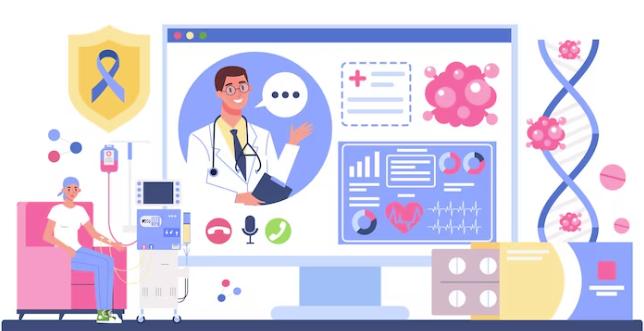Can Digital Solutions Unlock the Key to Optimal Care? Exploring Their Potential in Healthcare
The healthcare industry is undergoing a seismic shift, driven by the rapid adoption of digital solutions. As technology continues to evolve, healthcare providers are finding innovative ways to deliver better care, improve health outcomes, and optimize operations. But can these digital solutions truly unlock the key to optimal care? Let's explore their transformative potential.
The Role of Digital Solutions in Healthcare
Digital solutions, ranging from telemedicine platforms to advanced data analytics, are changing the way care is delivered. These technologies empower providers to offer more personalized, efficient, and accessible care, addressing long-standing challenges in the healthcare system.
Telemedicine, for instance, has dramatically expanded access to care, especially during the COVID-19 pandemic. According to the CDC, telehealth visits increased by 154% in March 2020 compared to the previous year. Patients can now consult with healthcare professionals from the comfort of their homes, reducing the need for in-person visits and ensuring continuity of care for those in remote areas.
Similarly, remote patient monitoring (RPM) tools are helping physicians track patients' vital signs and chronic conditions in real-time. Devices like wearable sensors and smart health apps enable continuous monitoring, providing critical data that can inform timely interventions. Studies show that RPM can reduce hospital readmissions by up to 50% for certain conditions, improving outcomes while lowering costs.
Enhanced Decision-Making with Data Analytics
Another powerful aspect of digital health is data analytics. Healthcare organizations are swimming in data, from patient records to treatment outcomes, but making sense of this information is challenging. Advanced analytics platforms transform raw data into actionable insights, helping providers make data-driven decisions.
Artificial intelligence (AI) is also playing a key role in enhancing clinical decision-making. AI algorithms can analyze medical images, detect anomalies, and assist in diagnostics, often with greater accuracy than human clinicians. In radiology, AI has shown potential in detecting early signs of diseases like cancer and Alzheimer’s, enabling earlier treatment and improving patient outcomes.
Improving Patient Engagement and Experience
Digital tools are also enhancing patient engagement by giving individuals more control over their health. Patient portals, for example, allow users to access their medical records, schedule appointments, and communicate with providers. By promoting transparency and convenience, these platforms improve patient satisfaction and adherence to treatment plans.



Comments